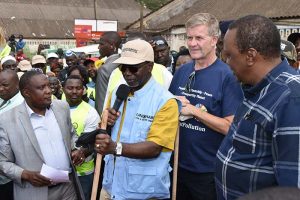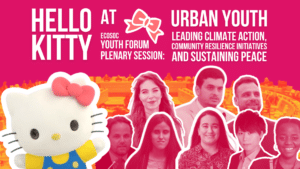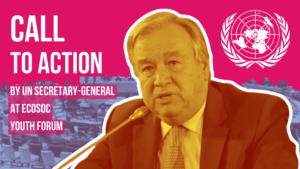 Nairobi 8 October 2018 – Following the launch of UN-Habitat’s new campaign to reduce the amount of global waste, President Uhuru Kenyatta of Kenya joined Nairobi’s Governor Mr. Mike Mbuvi Sonko, the Executive Director of UN-Environment Mr. Erik Solheim and UN-Habitat Deputy Executive Director Mr. Victor Kisob to clean up the mounds of rubbish at Uhuru Market in the Kenyan capital.
Nairobi 8 October 2018 – Following the launch of UN-Habitat’s new campaign to reduce the amount of global waste, President Uhuru Kenyatta of Kenya joined Nairobi’s Governor Mr. Mike Mbuvi Sonko, the Executive Director of UN-Environment Mr. Erik Solheim and UN-Habitat Deputy Executive Director Mr. Victor Kisob to clean up the mounds of rubbish at Uhuru Market in the Kenyan capital.
They were joined by officials from the Environment Ministry, county government officials and private sector companies.
This was the third cleanup in Nairobi which takes place in all 85 wards of the Nairobi County which was spearheaded by local authorities and members of the County Assembly of Nairobi.
President Kenyatta called on residents to take care of the environment

and thanked UN-Habitat and UN-Environment leadership for joining the cleanup. “We can only achieve our goals if we are united,” he said.
“Our monthly cleanup exercise has witnessed increased participati
on from youth and women groups, the private sector and resident associations among other key players in the city. We hope that all city residents will take it as part of their routine even as we embrace our clean up slogan my waste my responsibility,” said Nairobi County Governor, Mr. Sonko.
UN-Habitat Deputy Executive Director, Mr. Victor Kisob said the agency supported all efforts to clean up cities in Kenya. On World Habitat Day, on 1 October, UN-Habitat Executive Director Maimunah Mohd Sharif launched the ‘Waste Wise Cities’ campaign in the presence of President Kenyatta.
On 27 October the will take part in a clean up in the informal settlement of Mathare, Nairobi.



